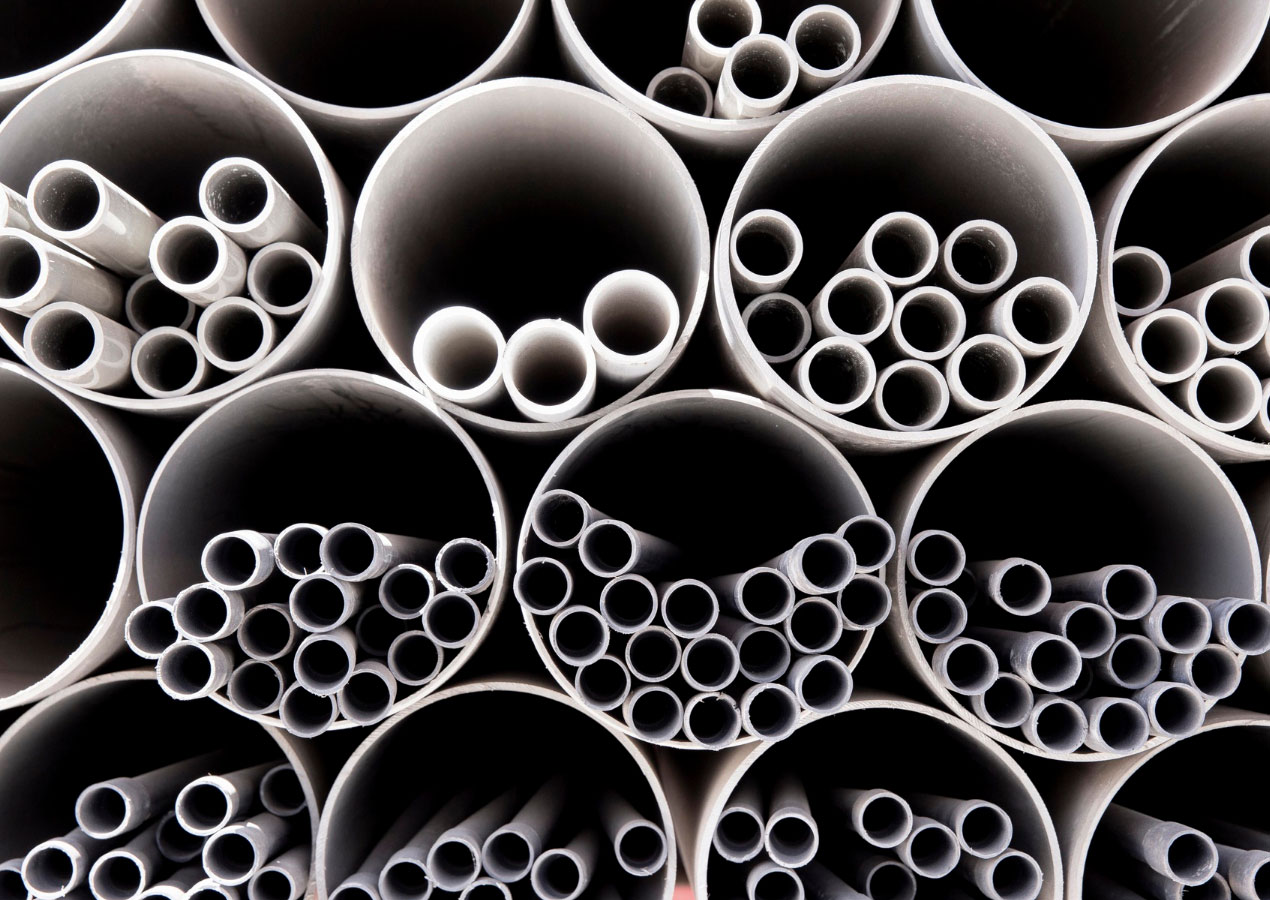
26 Oct Are PVC Pipes Safe for Drinking Water?
PVC (polyvinyl chloride) pipes have long been a staple in plumbing due to their low cost, durability, and ease of installation. However, recent concerns are casting doubt on whether PVC is the best choice for drinking water systems. The safety of these pipes, particularly their potential to leach harmful chemicals like vinyl chloride into water, has sparked a growing debate.
What Is Vinyl Chloride, and Why Is It Dangerous?
Vinyl chloride is a key ingredient in making PVC pipes and has been classified as a human carcinogen by the U.S. Environmental Protection Agency (EPA) since 1974. While PVC is a cost-effective option for cold water delivery, vinyl chloride and other chemical additives in the material may pose long-term health risks. These chemicals can leach into drinking water under certain conditions, such as exposure to high heat or UV radiation.
According to some reports, vinyl chloride exposure has been linked to various health problems, including liver damage, cancer, and reproductive issues. Even at low levels, consistent exposure to these chemicals through drinking water is concerning, particularly for vulnerable groups like children and pregnant women.
How Do Chemicals Leach from PVC Pipes?
One of the biggest concerns with PVC pipes is chemical leaching, a process where compounds like phthalates, BPA, or other harmful substances slowly seep into the water supply. Leaching can be accelerated by factors like:
- Heat Exposure: When PVC pipes are exposed to high temperatures, either from hot water or direct sunlight, the risk of chemical leaching increases.
- Aging Pipes: Over time, PVC pipes can break down, increasing the likelihood that harmful chemicals will find their way into drinking water.
- Water Quality: Certain water conditions, such as high acidity or the presence of other chemicals, can interact with the plastic material, causing it to degrade and release toxins.
These risks make it crucial to consider alternative materials for plumbing, especially in areas where drinking water safety is a concern.
Safer Alternatives to PVC
While PVC remains a popular choice for many plumbing applications, several safer alternatives exist for delivering potable water. Here are a few materials that are considered more reliable and safe for drinking water systems:
- Copper: Known for its durability and resistance to corrosion, copper has been a trusted plumbing material for decades. It is naturally antimicrobial and doesn’t leach harmful chemicals into the water. Though more expensive than PVC, its long-term safety makes it a sound investment.
- CPVC (Chlorinated PVC: Unlike standard PVC, CPVC undergoes a chlorination process that makes it more resistant to heat and chemical degradation. CPVC is NSF-certified for potable water use and is commonly used in both hot and cold water lines.
- Stainless Steel: Another reliable option, stainless steel pipes are highly durable and resist rust and chemical contamination. While costlier upfront, stainless steel offers a long lifespan and is considered one of the safest materials for drinking water systems.
- PEX (Cross-Linked Polyethylene): PEX pipes are becoming increasingly popular for home plumbing systems. They are flexible, resistant to scaling, and don’t corrode like metal pipes. PEX has been NSF-certified for potable water use, although concerns remain about certain additives and the need for further research into long-term health effects.
Are All PVC Pipes Unsafe?
It’s important to note that not all PVC pipes are created equal. Pipes certified for drinking water use must meet specific safety standards. However, some experts argue that there is insufficient research on the cumulative health effects of long-term exposure to the chemicals found in PVC. For this reason, many experts recommend erring on the side of caution and choosing materials that have been proven safe for long-term water consumption.
Organizations like Beyond Plastics and the Plastic Pollution Coalition have called for more independent testing and stricter regulations on the use of PVC for drinking water systems. The concern is that, while the immediate risks may seem low, the long-term health consequences of chemical leaching could be significant.
The Environmental Impact of PVC
Beyond the health risks, PVC also poses environmental challenges. The production of vinyl chloride releases harmful chemicals into the air, contributing to pollution in the communities surrounding manufacturing plants. Additionally, PVC is not biodegradable, making disposal a problem. Improper disposal or incineration of PVC can release toxic dioxins into the environment, further impacting public health.
Making an Informed Decision
If you’re considering a plumbing upgrade or replacement, it’s crucial to make an informed decision about the materials you use. While PVC pipes may offer cost savings, the potential health and environmental risks are significant. Consider consulting with a professional plumber to explore safer alternatives, such as copper, CPVC, or stainless steel.
At 535 Plumbing, we prioritize your health and safety. Our experts can help you assess the best materials for your home’s plumbing system, ensuring that you have safe, clean drinking water for years to come. If you have questions or concerns about PVC pipes or want to explore alternative materials, feel free to contact us for professional guidance.
535 Plumbing – Your Plumbing Safety Experts
If you live on Oahu and are in need of a licensed plumber to help with your plumbing safety issues, choose 535 Plumbing for the job! Our team of professional Oahu plumbers are highly skilled and our excellent customer support representatives will work with you to schedule your appointments at a time you most convenient. Learn more and schedule an appointment by calling (808) 300-0535, or Visit Our Contact Us Page. Mahalo!


